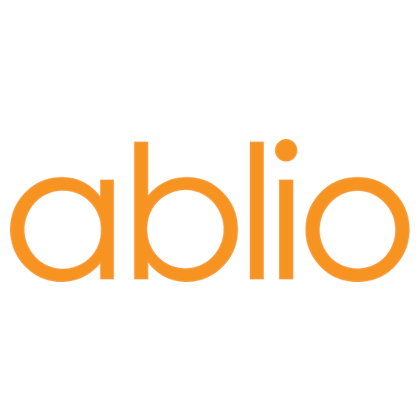Online Resources for Professional Interpreters

As a freelance or contract interpreter, a lot of your work is completed in your home or personal office. Although providing language services is one of the most rewarding jobs available, it can become lonely. As a community-minded agency, Ablio provides each interpreter with a coach and access to their interpreter peers, which all serve as wonderful resources.
Sometimes, you might want to work on a solution and other tasks including terminology refreshers and memorization that may simply work better if self-directed. In these instances, online resources can provide answers and practices that are perfect for an independent individual. If, on the other hand, you are looking to create a network, there are resources to help with that, as well. For your every need, there is a resource you can tap into.
General Interpreter Resources
Every interpreter has a few online resources they rely upon regularly. Perhaps some of the following are already in your regular rotation, but there are likely to be a few you aren't yet using.
- Alpha Dictionary Language Directory
- Bureau of Labor and Statistics: data and demographics
- Ethnologue: Languages of the United States: living languages in the US and across the globe
- Interpreter Education Online: a variety of online courses
- InTrans Book Service: monolingual, bilingual, multilingual dictionaries, language and translation study materials and related publications
- Linguist List overview of language links
Associations
One way to branch out of the solitary life of freelance work is to become involved with professional associations and organizations. These can grant you access to local peers and contacts, as well as connect you to field-specific publications and conferences. Through this networking, you will be better able to stay abreast of current discussions within the language services profession. They will also provide an additional layer of community involvement that can help mimic the socialization that would happen for most professionals in an office setting.
Listed below are general associations but there are many state and regional organizations as well, and you are invited to look them up. They will likely be more helpful in connecting you with nearby colleagues.
- The American Association of Language Specialists
- The American Council on the Teaching of Foreign Languages
- The American Society for Training and Development
- The American Translation & Interpreting Studies Association
- The Association for Machine Translation in the Americas
- The Association of Language Companies
- The European Language Industry Association
- The Globalization and Localization Association
- The International Association of Professional Translators and Interpreters
- The National Association for Bilingual Education
- The National Council of Less Commonly Taught Languages
- The Translation and Interpreting Summit Advisory Council
- The Translators and Interpreters Guild
Healthcare Resources
Professionals working within the healthcare system should seek out state-level resources, as laws, terminology, and certification needs can vary. The following links are federal or general use.
- AACP / Cultural Competency and Diversity Resources Consumer Health Information in Many Languages: National Network of Libraries of Medicine, NN/LM)
- Certification Commission for Healthcare Interpreters a national accreditation organization for interpreters in health care settings
- Cultural Competency Resources
- DiversityRx: dedicated to improving the quality of health care for minority, immigrant, and ethnically diverse communities
- International Medical Interpreters Association
- National Board of Certification for Medical Interpreters a national accreditation organization for interpreters in health care settings
- National Center for Cultural Competence
- National Council on Interpreting in Health Care
- Spanish Health Information Resources for English Speakers
Judicial Resources
As with healthcare interpreters, professionals working within the court system should also seek out state or regional level resources, as laws, terminology, and certification needs can vary. The following links are federal or general use.
- ACEBO: court interpreter training materials and links to recommended reference sources
- The Administrative Office of the United States Court
- The Council of Language Access Coordinators (formerly the Consortium)
- Practice Examination Kit (All English)
- Practice Examination Kit (Spanish)
- List of Certification Requirements (by State)
- Schedules of Examination and Testing (by State)
- Federal Court Interpreter Website
- Federal Interagency Working Group on Limited English Proficiency
- National Judiciary Interpreter and Translator Certification: The exam contains a written (antonyms, synonyms, analogies, grammar, and syntax, reading comprehension, idioms and proverbs, and ethics) portion. There is also an oral (consecutive interpretation, simultaneous interpretation, and sight translation) exam portion. Certification is currently accepted in the US in Colorado, Connecticut, Delaware, Hawaii, Iowa, Massachusetts, New York, Pennsylvania, Rhode Island, Texas, and< Wisconsin.
- U.S. DOJ Civil Rights Website of the Federal Interagency Working Group on Limited English Proficiency
- The United States Sentencing Commission
Here a translator career map for helping understand what it's like to work as a translator
Using state-of-the-art IT & telecommunication technologies, ablio makes language interpretation services easily available to everyone, in any context, by creating tools and service platforms that are supported by its own community of live interpreters.
For further information please visit our websites:
● ablio.eu – General Website
● ablio.com – OPI Platform
● ablioconference.com – Simultaneous Interpreting Platform

